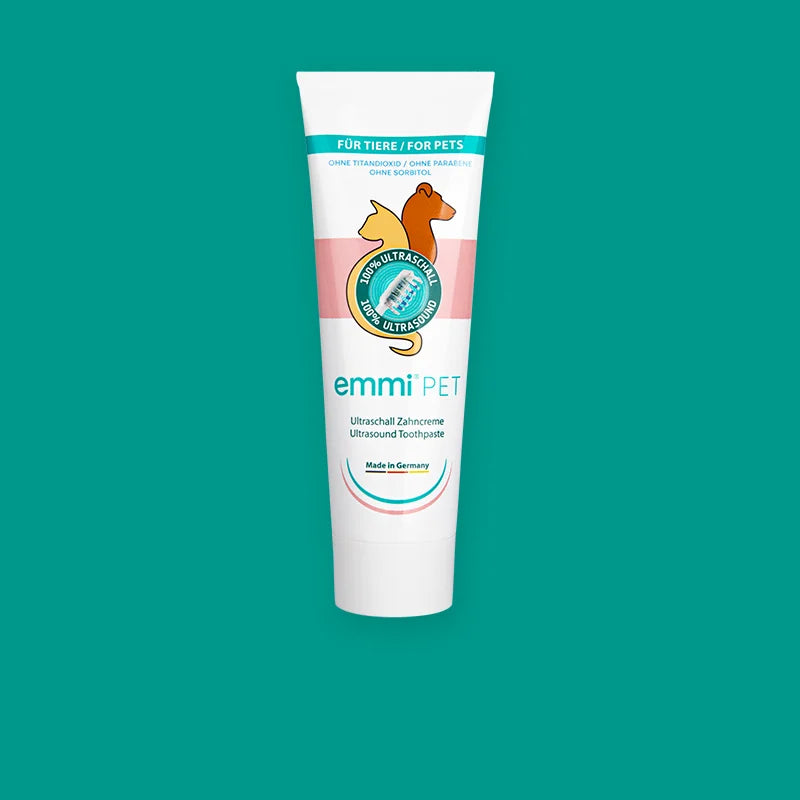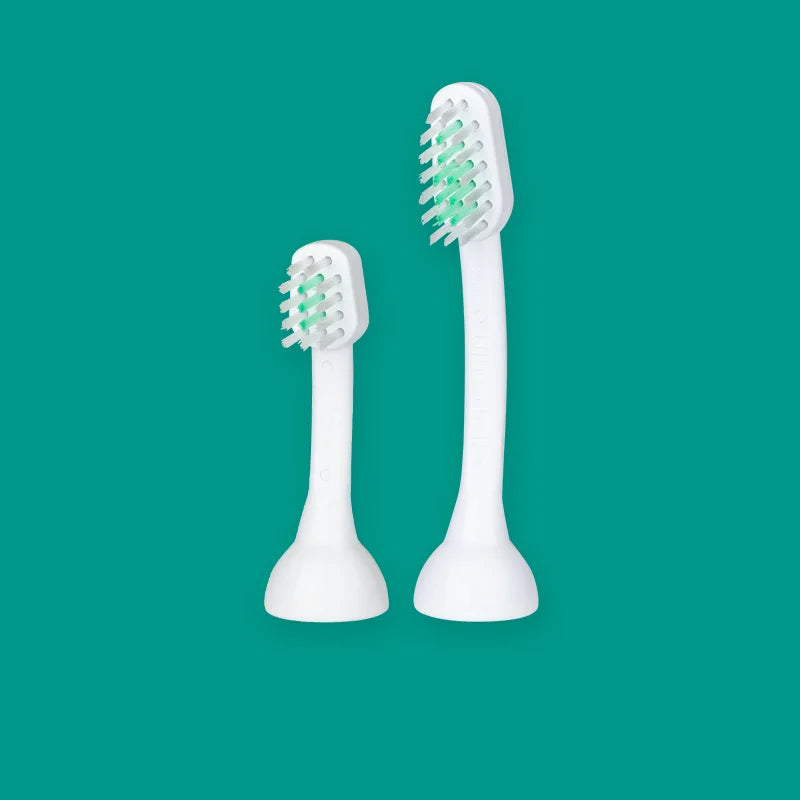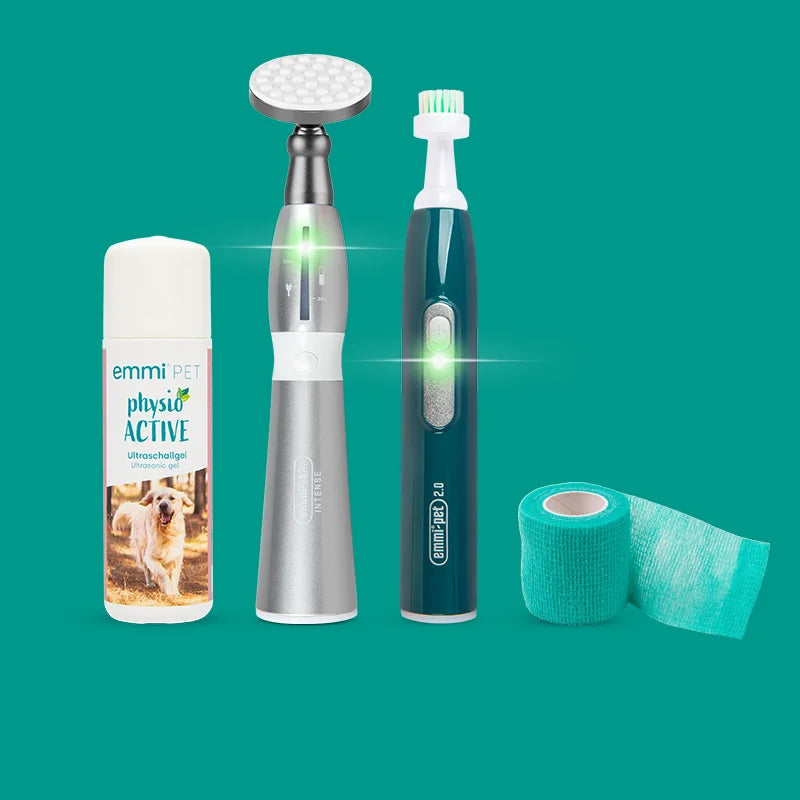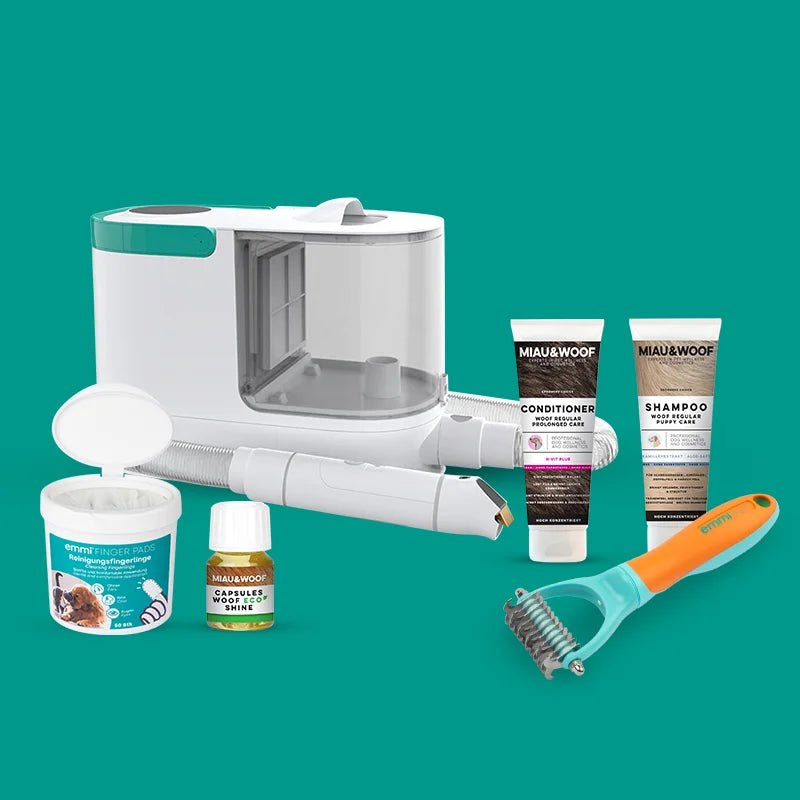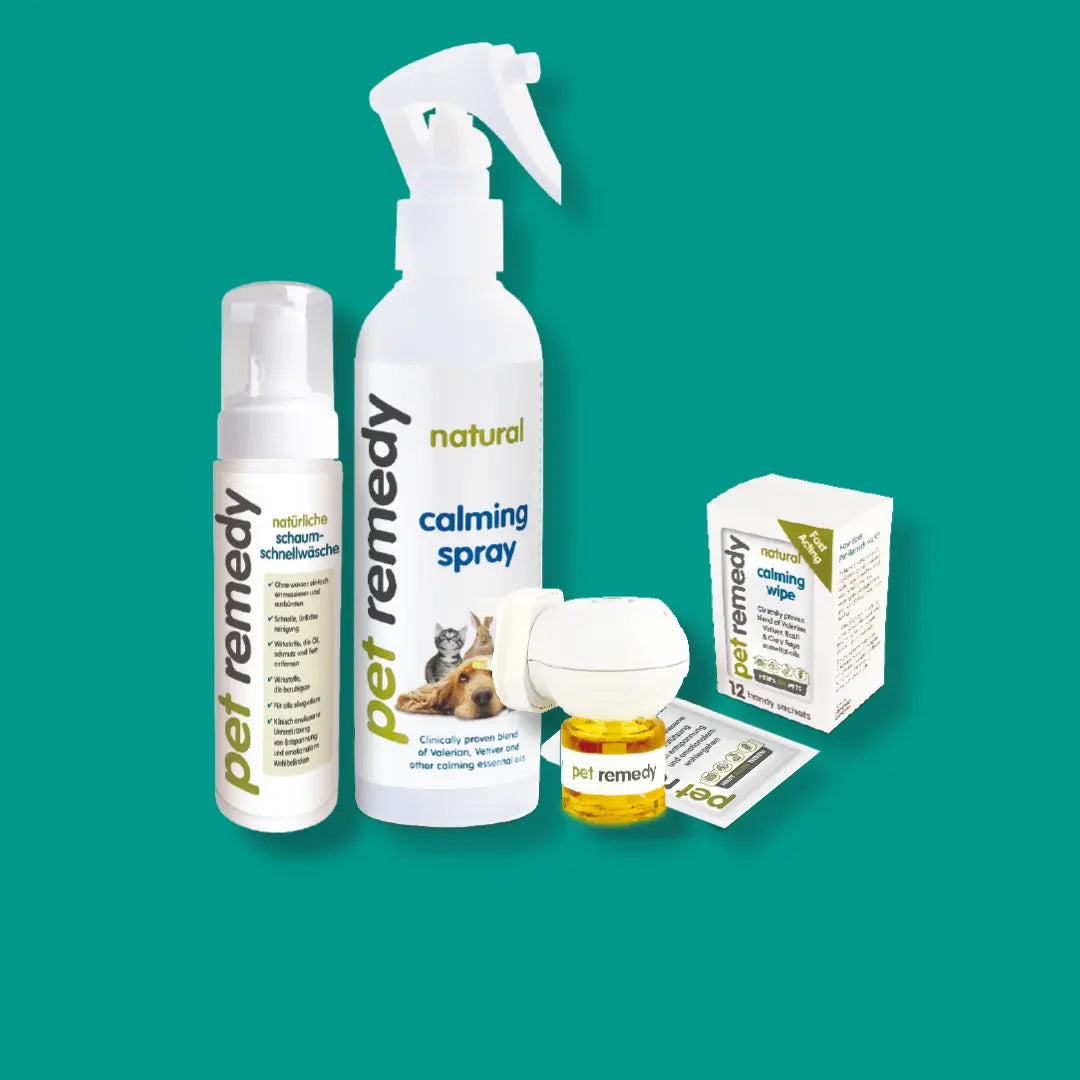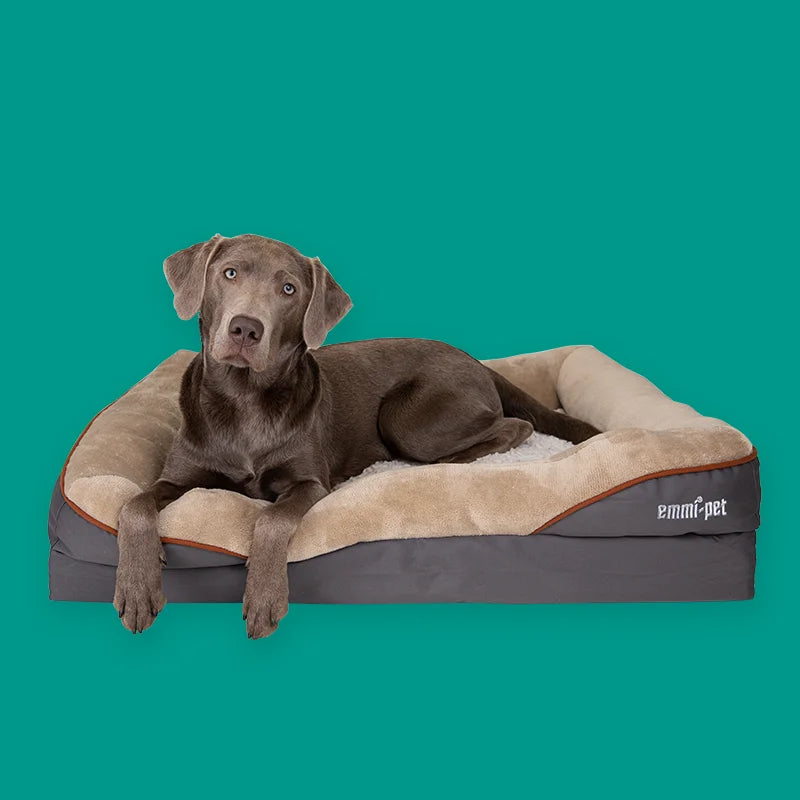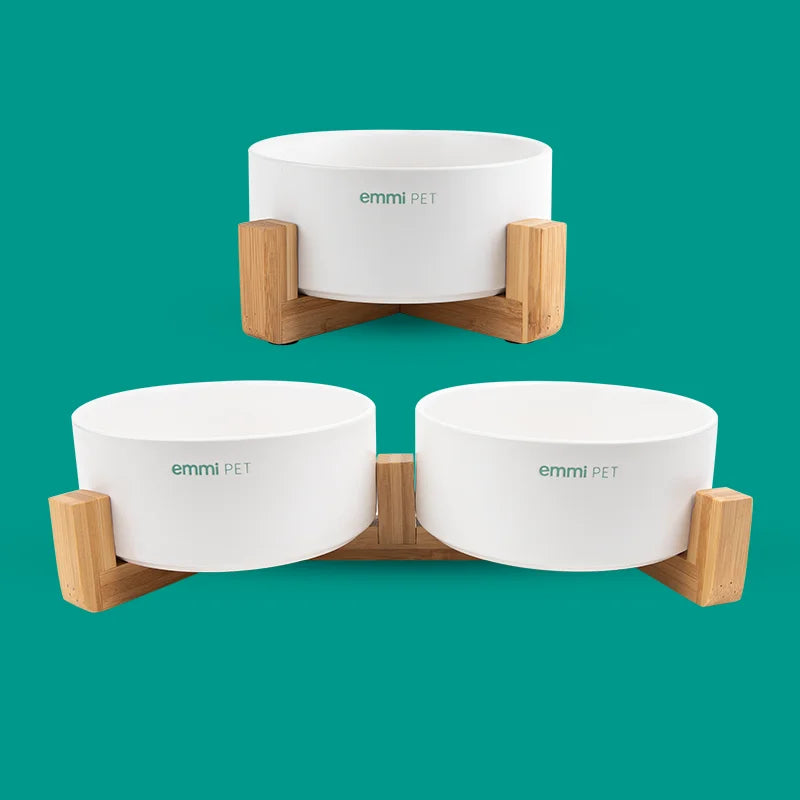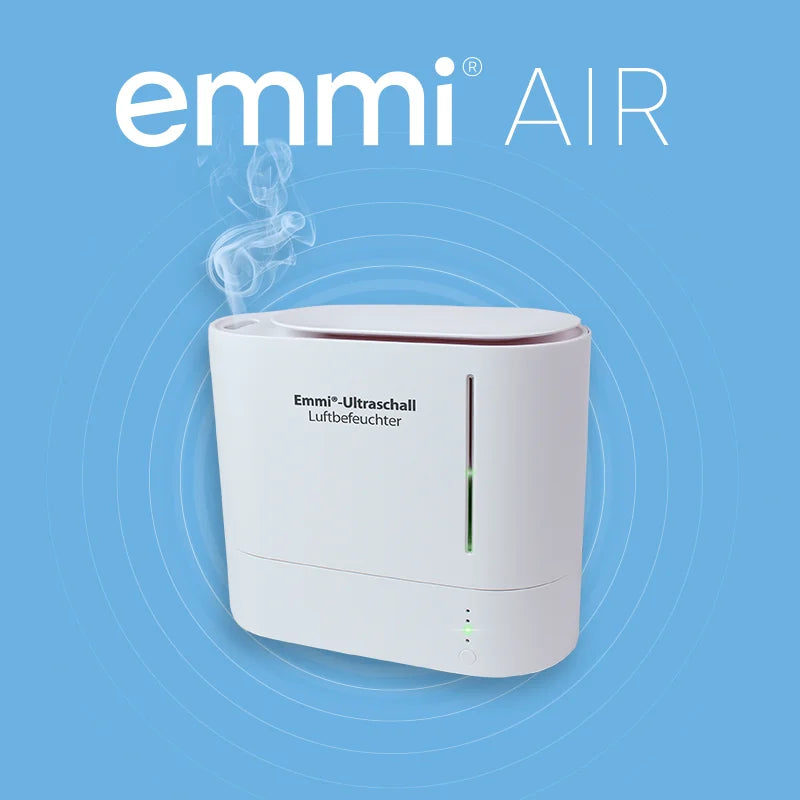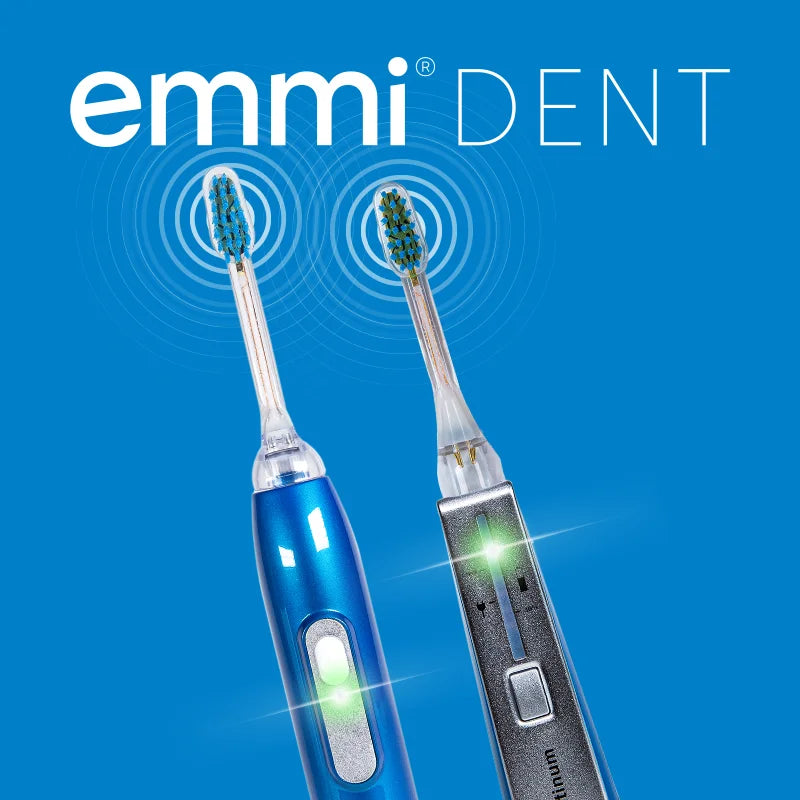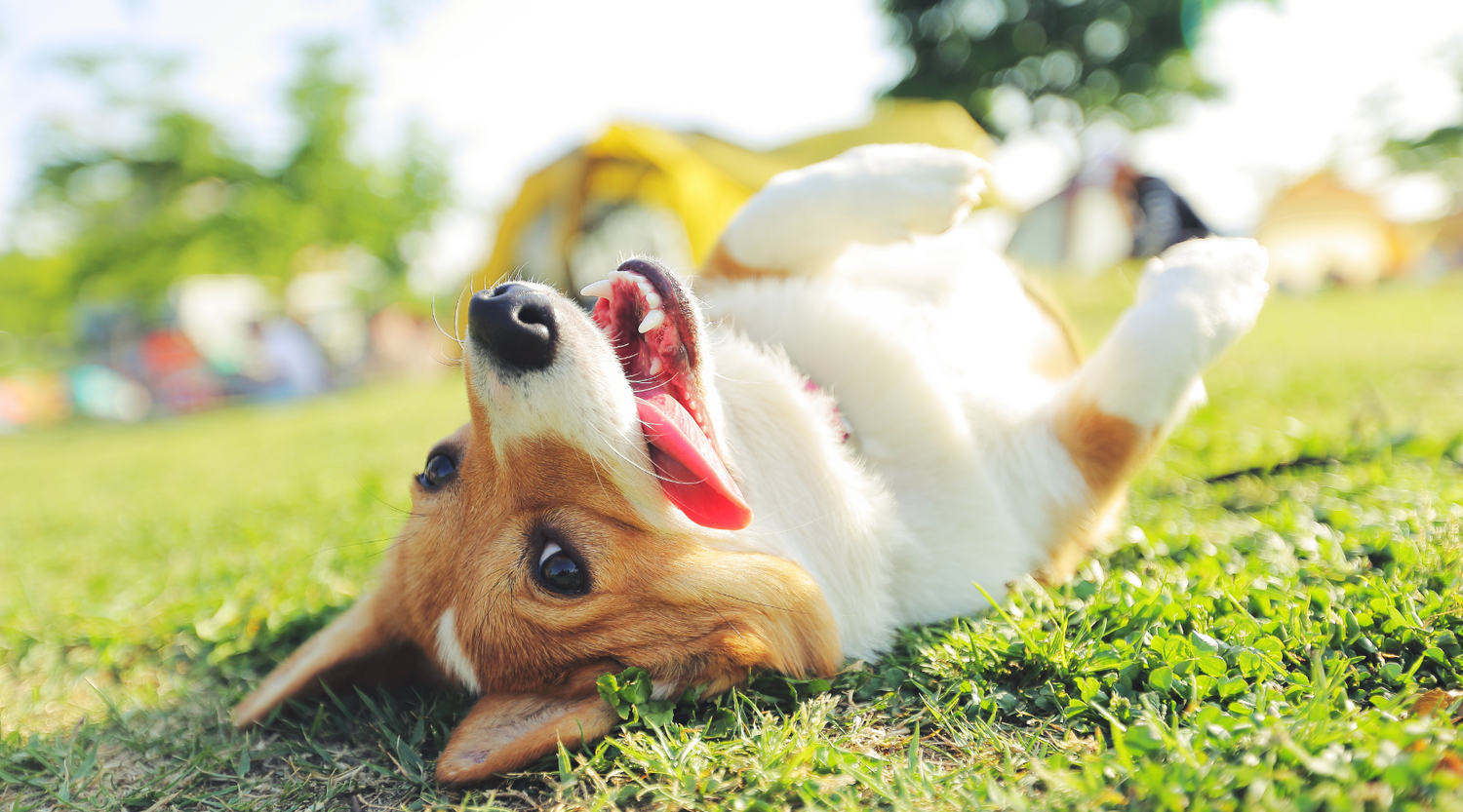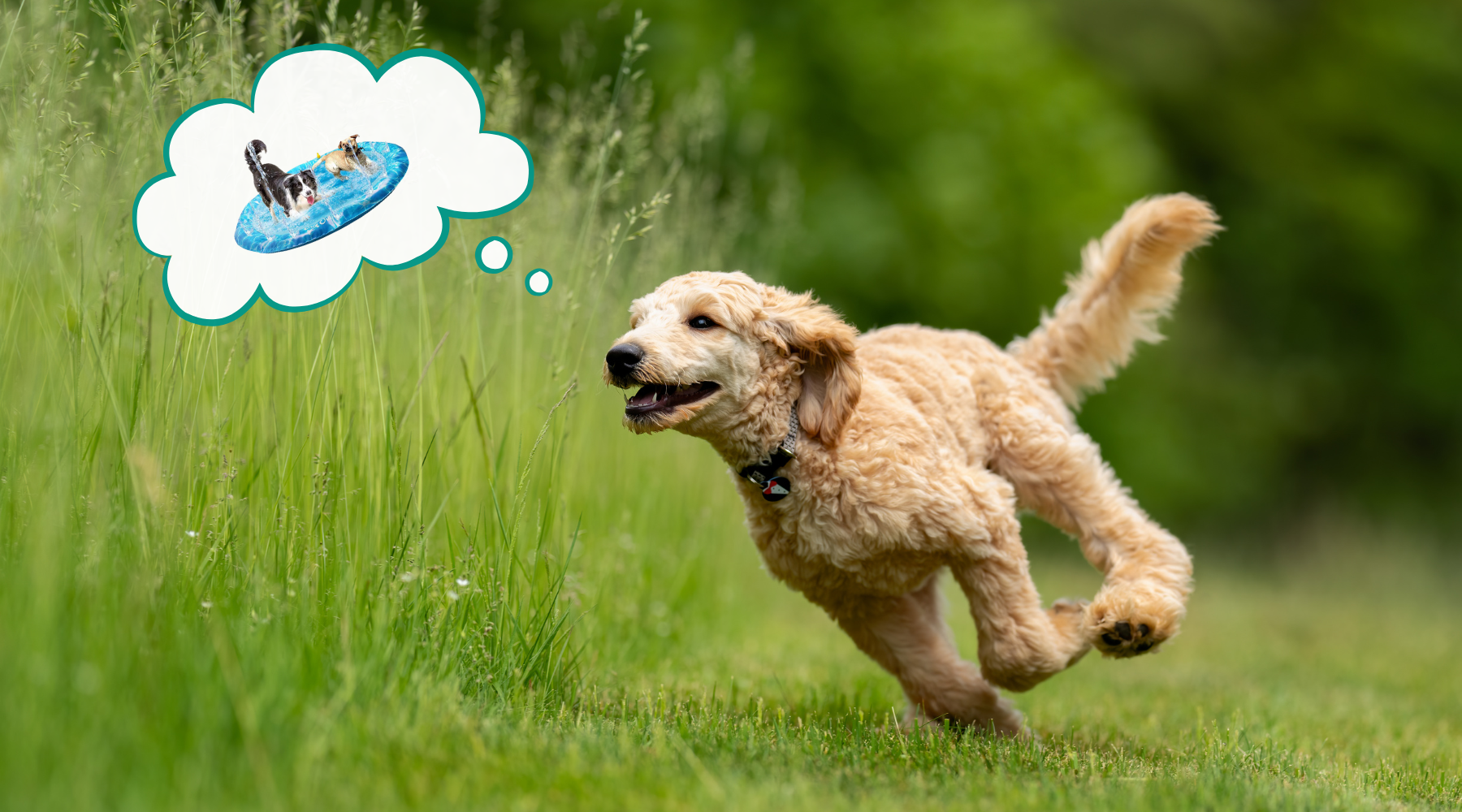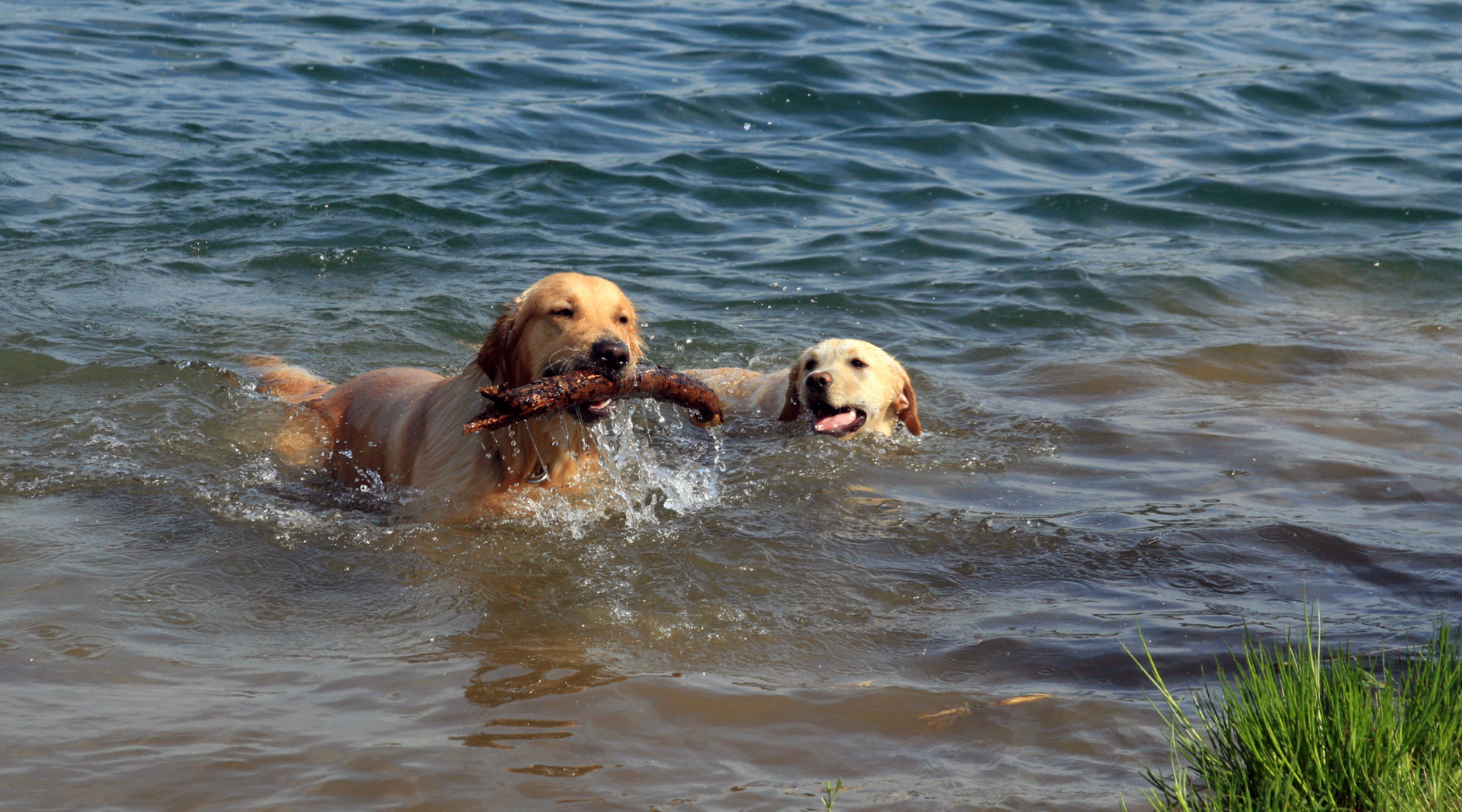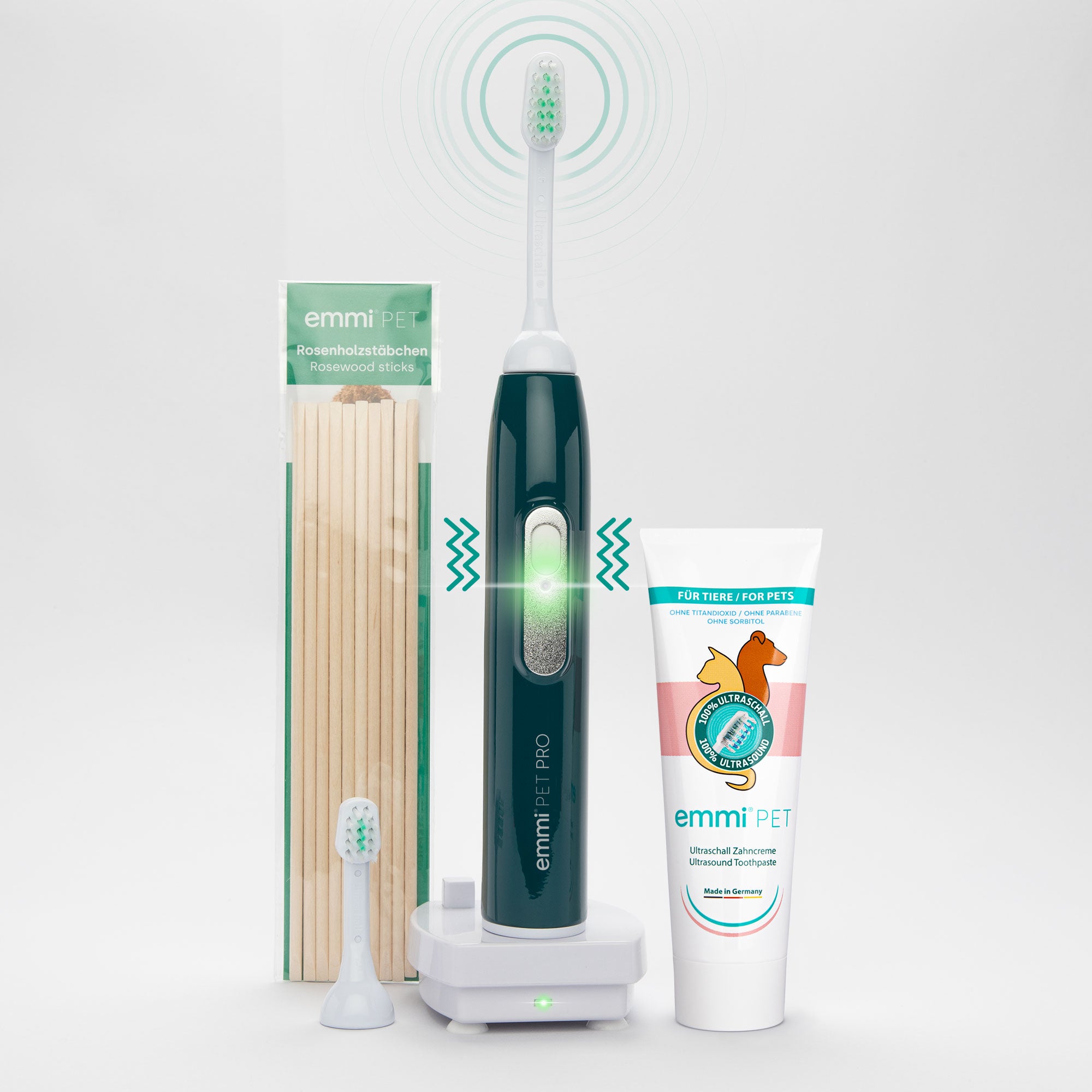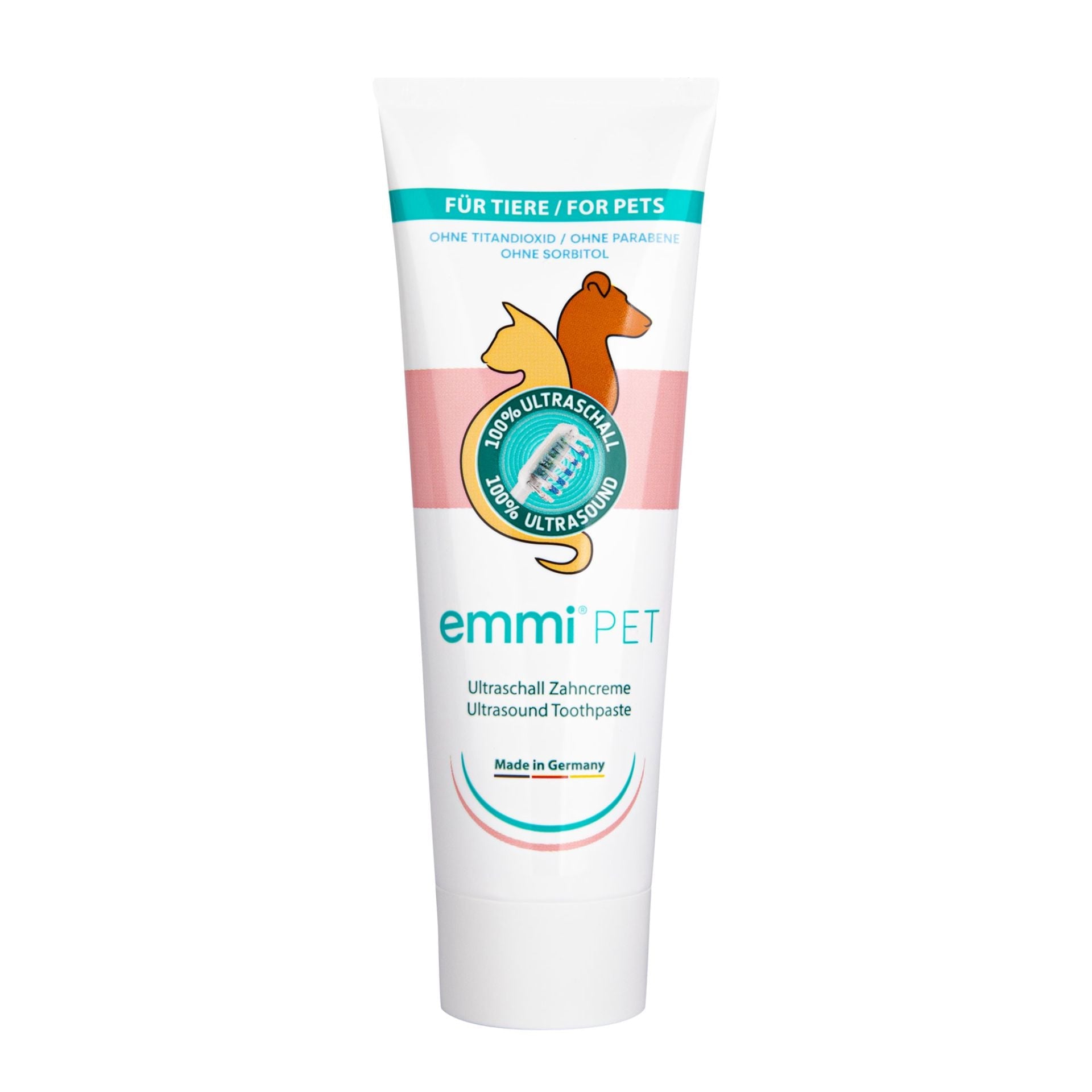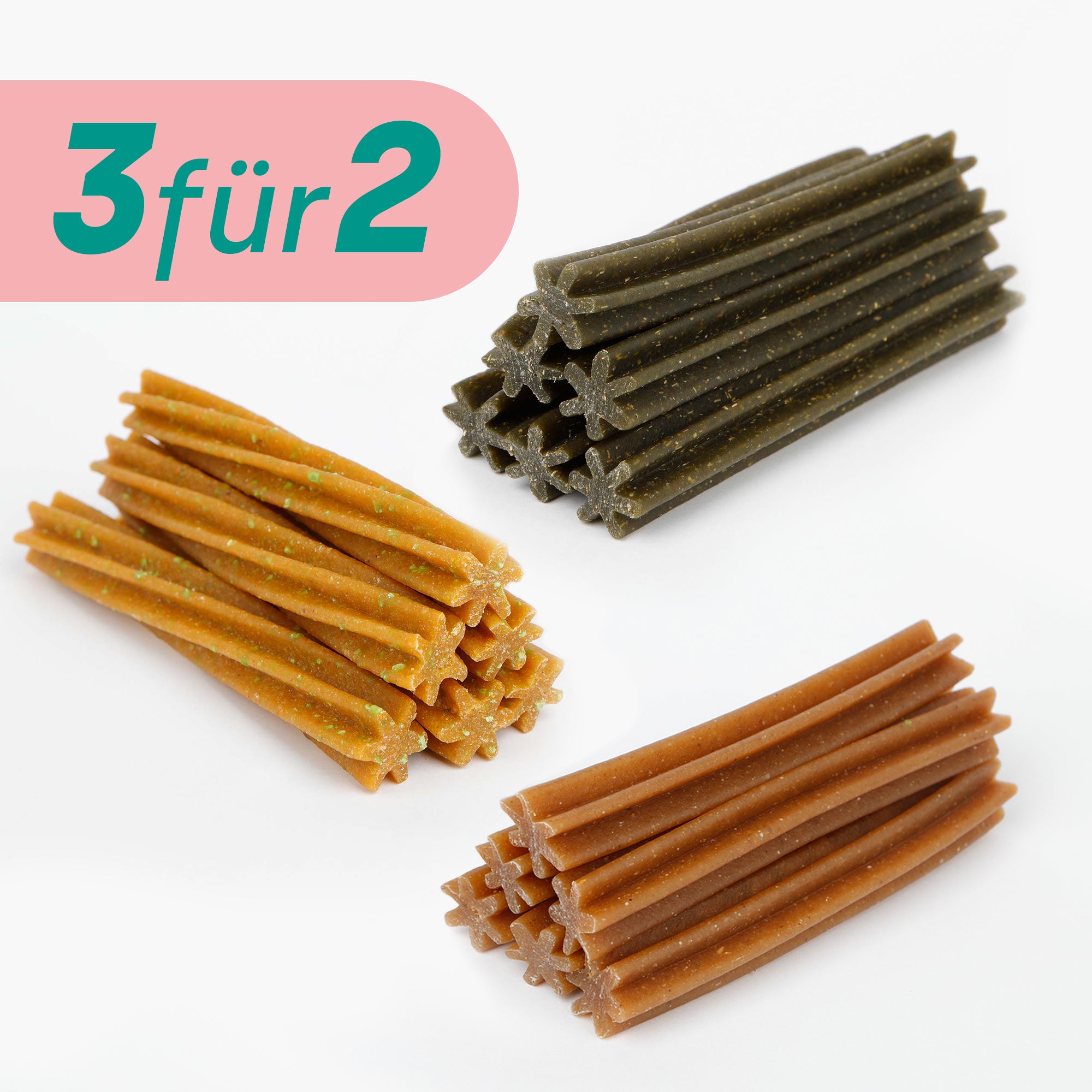Summer is a wonderful time for many dogs: walks in the morning sun, relaxing hours in the shade, and refreshing water games are now part of everyday life. But the warm season doesn't just bring pleasant moments – it also challenges our four-legged friends' bodies in a very special way. As temperatures rise, the entire body adjusts: dogs pant more frequently, drink significantly more, and often have less appetite.
What appears harmless at first glance is actually a delicate interplay of the body's own processes – which doesn't stop at the mouth. Especially in summer , dental health can quickly become unbalanced if targeted countermeasures aren't taken.
In this article, you'll learn why heat stress and mouth care are inextricably linked , what you should pay particular attention to during the hot weeks - and how you can give your dog noticeable relief with the right care.
What happens in your dog's body when it's hot?
Unlike humans, dogs don't have sweat glands to release excess heat. Their only way to regulate their body temperature is essentially panting. This process evaporates saliva on the tongue, providing a certain cooling effect. But this vital mechanism comes at a price: Constant breathing with an open mouth constantly exposes the mucous membranes to air, causing them to dry out more quickly.
The consequence? The throat becomes dry, saliva flow decreases during resting, and the natural cleansing power of the mouth is disrupted. This creates an environment in which bacteria can multiply unhindered, especially in narrow spaces between teeth and along the sensitive gum line.
In addition, many dogs have little appetite in extreme heat. They chew less, even abandoning their favorite food—and thus, the mechanical stimuli that normally provide a certain degree of dental cleaning are also eliminated. What remains is an unfavorable combination: heat, dry mucous membranes, and reduced chewing movement—and thus an ideal breeding ground for tartar, inflammation, and unpleasant mouth odor.
Symptoms of heat stress that also affect the mouth
You may have noticed it on particularly hot days: Your dog seems different . Not sick, but not quite like usual either. Pay closer attention, because the heat leaves its mark, especially in the sensitive mouth area.
- Is he suddenly panting more often – even when lying down and without much exertion?
- Is he refusing his food or seems to have difficulty chewing?
- Do you notice increased drooling or a slightly sweet, unusual smell from the mouth?
- Or do you perhaps find sand, wood splinters or other small particles in the mouth after playing in the water?
These are all typical signs that your dog is struggling with the heat – and that his mouth is currently particularly sensitive and in need of care . Constant panting and reduced saliva production create an environment that practically invites bacteria: warm, moist, and poorly irrigated. This is precisely where inflammation, tartar, and other problems can develop faster than you think.
Why dental care is so crucial in summer
Dental care should be a loving, routine part of your dog's routine year-round – but this area deserves special attention during the summer months . Heat, changes in daily routine, and physical stress also leave their mark on the mouth – often quietly but effectively.
The most common summer risks to oral health include:
-
Dry mucous membranes due to constant panting
If the dog pants constantly, the mucous membranes dry out, making them more susceptible to small cracks, inflammation and bacterial colonization . -
Loss of appetite or refusal to eat
Many dogs eat less or only eat very soft food in extreme heat. The natural chewing motion that normally helps loosen plaque is often lost. -
Increased water intake
Drinking from stagnant water, garden ponds, or old bowls can be particularly problematic. Germs and bacteria can enter the mouth unnoticed —and find ideal conditions there in warm climates. -
More exercise outdoors
Summertime is adventure time – but that also brings dangers: blades of grass, grains of sand, pieces of bark or small injuries caused by branches and insects can get stuck in the mouth and lead to inflammation. -
Faster formation of plaque and tartar
Plaque adheres particularly well to dry oral mucosa. Without counteracting measures , it quickly develops into hard tartar —with all the associated problems.
In short: Summer puts its own unique demands on your dog's mouth. Gentle but consistent dental care is all the more important to protect your dog before problems arise.
Why regular oral care is so important for your dog – not just in summer – you can find out in detail in the article: “For the health of your four-legged friend: The best dental care for dogs.”
Your summer dental care plan: How to keep your mouth healthy
Especially now, during the warmer months, it's crucial not to leave your dog's oral health to chance . With a consistent, yet lovingly relaxed grooming routine, you can help your four-legged friend get through the summer healthy and free of symptoms – and, at the same time, prevent unpleasant surprises at the vet.
Here are four tried-and-tested tips to help you provide gentle but effective support to your dog:
1. Daily dental care – ideally with ultrasound
Our emmi-pet PRO ultrasonic toothbrush is a great choice, especially for sensitive or panting dogs. Its biggest advantage:
It cleans completely silently – and without any mechanical movement. This means no additional stress for your dog, even on hot days.
The fine ultrasonic waves break down plaque and bacterial buildup in places you often can't reach with a brush or finger cot – thoroughly, gently, and completely pressure-free . This is a particularly pleasant form of dental care, especially for dogs who have difficulty concentrating in hot weather or who become restless quickly.
You can find step-by-step instructions for use here: "Optimal use of the emmi‑pet ultrasonic toothbrush for dogs and cats."
2. Fresh water – change several times a day
So simple yet so effective: Fresh, cool water is not only important for cooling off in the summer, but also for oral health. It washes away germs and promotes saliva production—which is precisely the natural protective mechanism in your dog's mouth.
A little extra tip: Metal bowls can get very hot in the sun. Instead, opt for ceramic or thick-walled plastic and place the bowl in the shade.
3. Dental care snacks? Yes, but in moderation and with common sense.
In summer, your dog's body is already under greater stress. Too many or too hard snacks can do more harm than good. Look for easily digestible alternatives and make small adjustments:
- Chewable strips without added sugar
- No extremely hard bones at high temperatures
- Better to let your dog chew in the evening when he is relaxed and the heat subsides
This way, the fun of chewing is maintained – without additional strain on teeth and digestion.
4. Mouth check after water fun
Whether it's a garden hose, a quarry lake, or a dog pool—in the summer, a lot of things end up in your pet's mouth that don't belong there. A quick check after every water game can make a big difference.
What should you keep in mind?
- Blades of grass that wedge themselves on the palate
- Sand, small pieces of wood or bark residue between the teeth
- Fine injuries caused by shells, stones or sharp-edged branches
Especially curious dogs who like to pick up everything they find benefit from this small but important routine.
What to do if your dog has mouth problems in the summer?
If your dog shows one or more of these signs, you should take action:
- He eats less well or only soft food
- He drools more or has reddened gums
- He appears calmer or withdraws overall
Often these are just harmless irritations – but now is the perfect moment to counteract them early with gentle ultrasonic dental care.
However, if bloody spots, purulent discharge, or strong mouth odor occur, a visit to the vet is recommended. In combination with professional dental cleaning, daily care with our emmi-pet PRO can significantly support the healing process.
The role of dental care for general well-being
Teeth and gums have a major impact on the immune system. Chronic gum inflammation weakens the entire body—and this is an additional burden, especially in summer, when the circulatory system and organs are already working harder.
By protecting your dog's dental health, you're also strengthening his heart, kidneys, and digestion. This means more energy for adventures, more joy in life—and less worry for you.
Dental care is also summer health care
Summer puts your dog's body to the test – and it starts in the mouth. Panting, changes in eating behavior, water intake, and minor injuries can quickly become triggers for mouth problems.
But with a gentle, regular dental care routine—for example, with our emmi-pet PRO —you not only prevent tartar and inflammation, but also strengthen your dog's overall health. Because a healthy dog starts with a healthy mouth.

